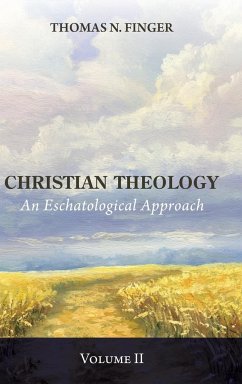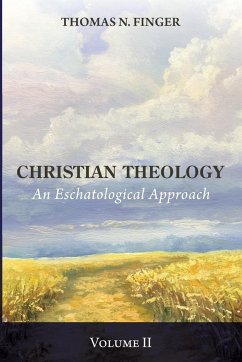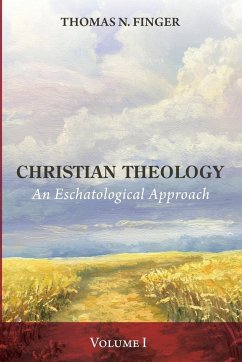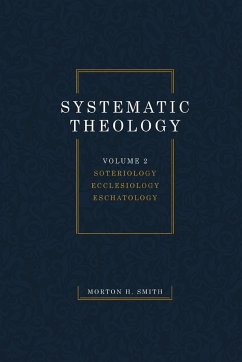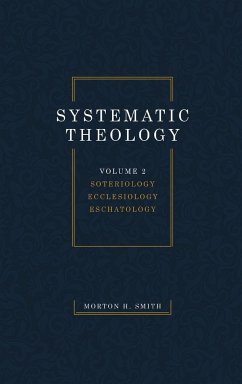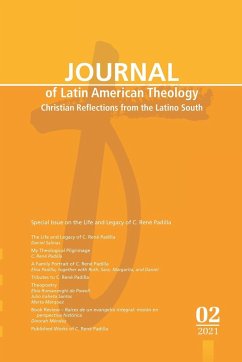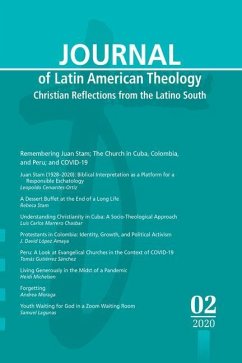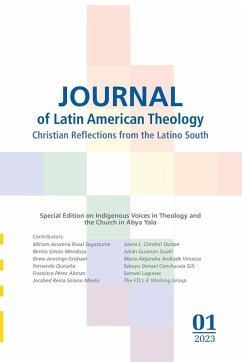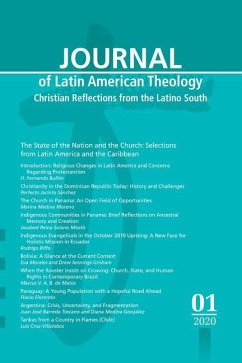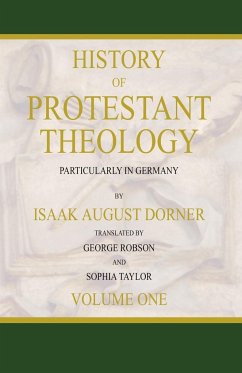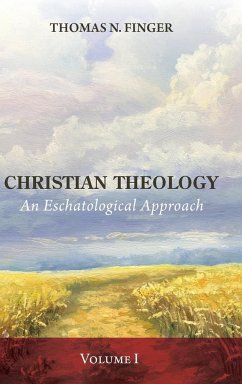
Christian Theology, Volume One
Versandkostenfrei!
Versandfertig in 1-2 Wochen
50,99 €
inkl. MwSt.
Weitere Ausgaben:

PAYBACK Punkte
25 °P sammeln!
""Thomas N. Finger has chosen an approach to the systematic presentation of Christian Theology which I also have taken since the publication of my Theology of Hope in 1964. He begins with the goal: with eschatology. With that goal in mind, a new light is cast on every single doctrine of Christian theology--the light of redemption--and the work of the theologian becomes a labor of hope. This is a 'theology of the way.' With the kingdom of God kept steadily in view, it becomes an invitation to walk the way of Jesus. ""Tom Finger's theological prospectus makes a brilliant contribution to ecumenic...
""Thomas N. Finger has chosen an approach to the systematic presentation of Christian Theology which I also have taken since the publication of my Theology of Hope in 1964. He begins with the goal: with eschatology. With that goal in mind, a new light is cast on every single doctrine of Christian theology--the light of redemption--and the work of the theologian becomes a labor of hope. This is a 'theology of the way.' With the kingdom of God kept steadily in view, it becomes an invitation to walk the way of Jesus. ""Tom Finger's theological prospectus makes a brilliant contribution to ecumenical theological dialogue from the Anabaptist tradition. He offers an eschatologically oriented theology for which I can only congratulate him."" --Jurgen Moltmann, Professor of Theology, University of Tubingen While many systematic theological texts are shaped by academic discussion of ancient thought and/or modern philosophies, Finger centers on the kerygma of the biblical text: that the ""last things,"" or ""eschatological"" events expected at history's climax had already occurred through Jesus' life, death, and resurrection, though they were not yet fully realized. To present eschatology as a living hope that always has motivated, and still motivates, Christians and Christian communities in all things, Finger does not follow the discipline's traditional order where eschatology appears last, but places it first. Volume II will culminate with the doctrine of God, which usually comes first. This is hardly to minimize God's importance, but to maximize it as the Christian faith's most profound mystery. Volume I begins with eschatology to present it as a dynamic, boundless atmosphere in which theological reflection unfolds. While this dynamism envelops Christian life and mission, it is not merely ""subjective."" It is hope for the transformation of all creation. It is not only celebrative, for it also struggles against the gruesome evils that seek to dominate all things. From this vantage point, eschatology in Volume I seeks to articulate the significance of the resurrection, the last judgment, heaven and hell, the return of Christ, and the millenium's coming. These reflections lead to revelation, beginning from the final revelation of Jesus Christ (1 Peter 1:3-13). Revelation's dimensions are treated as personal; as historical, extending forwards from Genesis; and as propositional, or its way of converying its contents. These point theological reflection to revelation's center, Jesus Christ, chiefly to his saving ""work"" in his life, death, and resurrection. Here the strengths and weaknesses of the traditional substitutionary and moral influence theories are examined. But when placed within their revelational or historical sequence, Jesus' conflict with the powers of evil stands out. These prove to be gigantic systemic forces which have always ordered, but also imprisoned, humankind, such as the Roman Empire. Yet their horror and power stretch beyond any social or psychological explanation. In Jesus' life and death, these powers appear to conquer him. But through his resurrection, Jesus conquers them. This drama is best articulated by the Christus Victor approach in which Jesus, with his Father and Spirit, defeats these powers, but does not totally destroy them. This is why their eschatological reign is ""already"" present, but evil is ""not yet"" destroyed until the end.




